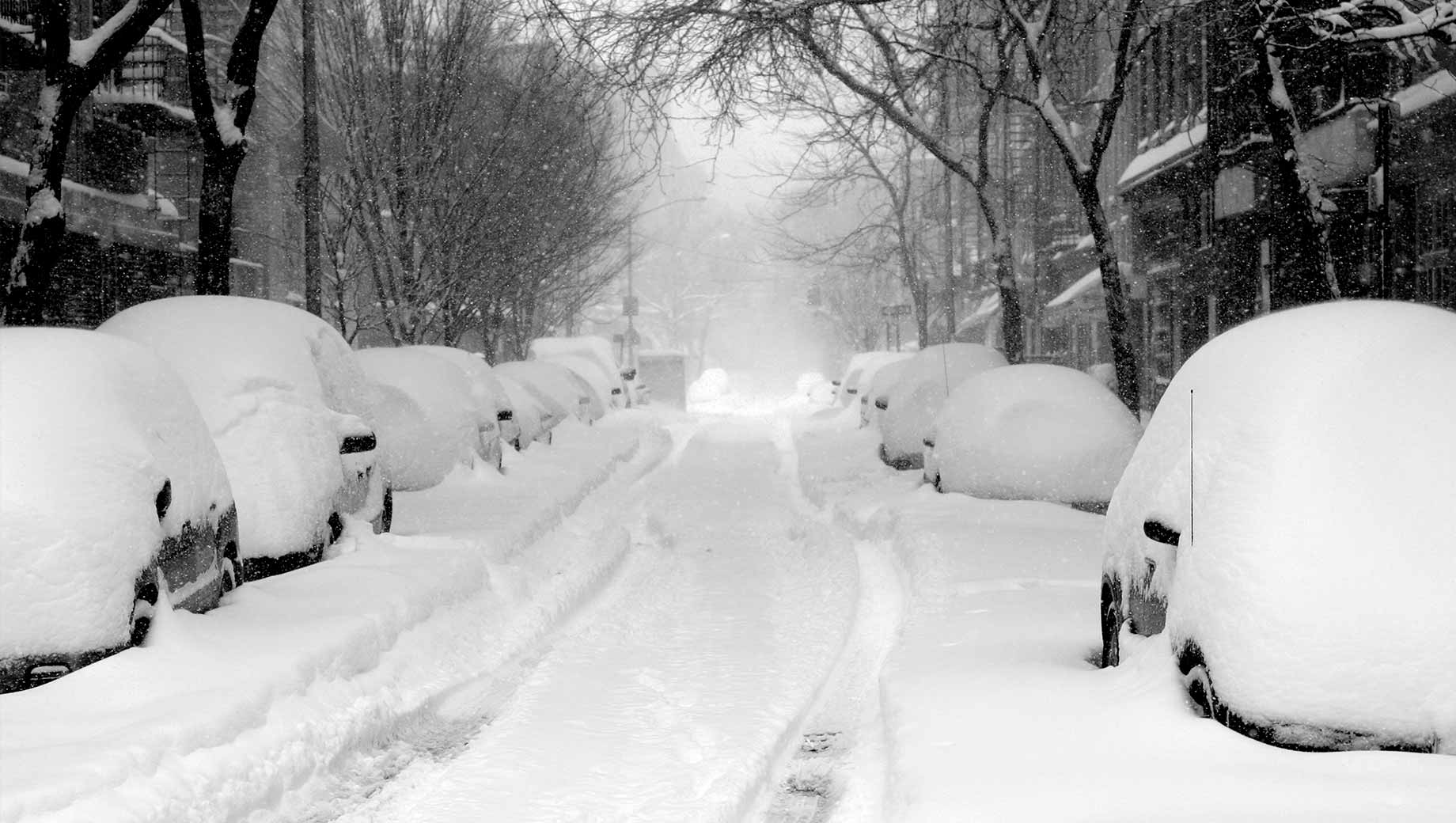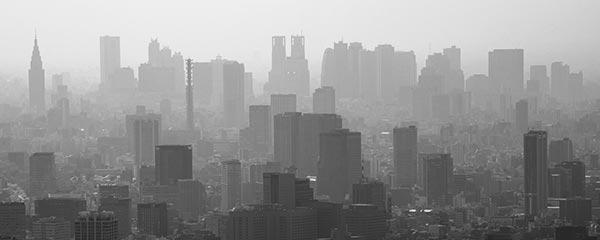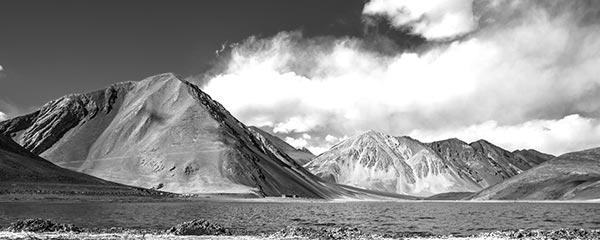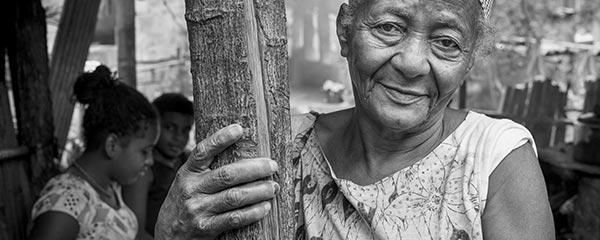Story Highlights
- By 43% to 20%, more in the U.S. experienced a colder than warmer winter
- 70% now blame human activity for warmer winter, up from 38% in 2012
- Fewer blame human activity for unusually cold temperatures
WASHINGTON, D.C. -- As the winter of 2018-2019 entered its final phase in early March, 43% of Americans told 优蜜传媒their local temperatures have been colder than usual this winter while about half as many, 20%, reported warmer than usual temperatures. Overall, a third of Americans this year attributed atypical winter weather to human-induced climate change.
| March 1-10, 2019 | ||||||||||||||||||||||||||||||||||||||||||||||||||||||||||||||||||||||||||||||||||||||||||||||||||||
|---|---|---|---|---|---|---|---|---|---|---|---|---|---|---|---|---|---|---|---|---|---|---|---|---|---|---|---|---|---|---|---|---|---|---|---|---|---|---|---|---|---|---|---|---|---|---|---|---|---|---|---|---|---|---|---|---|---|---|---|---|---|---|---|---|---|---|---|---|---|---|---|---|---|---|---|---|---|---|---|---|---|---|---|---|---|---|---|---|---|---|---|---|---|---|---|---|---|---|---|---|
| % | ||||||||||||||||||||||||||||||||||||||||||||||||||||||||||||||||||||||||||||||||||||||||||||||||||||
| Total colder than usual | 43 | |||||||||||||||||||||||||||||||||||||||||||||||||||||||||||||||||||||||||||||||||||||||||||||||||||
| About the same as usual | 36 | |||||||||||||||||||||||||||||||||||||||||||||||||||||||||||||||||||||||||||||||||||||||||||||||||||
| Total warmer than usual | 20 | |||||||||||||||||||||||||||||||||||||||||||||||||||||||||||||||||||||||||||||||||||||||||||||||||||
| No opinion | 1 | |||||||||||||||||||||||||||||||||||||||||||||||||||||||||||||||||||||||||||||||||||||||||||||||||||
| Detailed results: | ||||||||||||||||||||||||||||||||||||||||||||||||||||||||||||||||||||||||||||||||||||||||||||||||||||
| Colder than usual, due to climate change | 19 | |||||||||||||||||||||||||||||||||||||||||||||||||||||||||||||||||||||||||||||||||||||||||||||||||||
| Colder than usual, due to normal variation | 23 | |||||||||||||||||||||||||||||||||||||||||||||||||||||||||||||||||||||||||||||||||||||||||||||||||||
| Colder than usual, unsure of reason | 1 | |||||||||||||||||||||||||||||||||||||||||||||||||||||||||||||||||||||||||||||||||||||||||||||||||||
| Warmer than usual, due to climate change | 14 | |||||||||||||||||||||||||||||||||||||||||||||||||||||||||||||||||||||||||||||||||||||||||||||||||||
| Warmer than usual, due to normal variation | 5 | |||||||||||||||||||||||||||||||||||||||||||||||||||||||||||||||||||||||||||||||||||||||||||||||||||
| Warmer than usual, unsure of reason | 1 | |||||||||||||||||||||||||||||||||||||||||||||||||||||||||||||||||||||||||||||||||||||||||||||||||||
| Total due to climate change | 33 | |||||||||||||||||||||||||||||||||||||||||||||||||||||||||||||||||||||||||||||||||||||||||||||||||||
| Gallup | ||||||||||||||||||||||||||||||||||||||||||||||||||||||||||||||||||||||||||||||||||||||||||||||||||||
These results are based on Gallup's March 1-10 Environment poll, conducted prior to the recent bomb cyclone that brought blizzard and hurricane conditions to parts of the country. Respondents were first asked to say whether temperatures this winter where they live have been colder than usual, about the same as usual or warmer than usual. Those reporting colder or warmer than usual temperatures were then asked whether they attribute that to human-caused climate change or normal year-to-year variation in temperatures.
More Attributing Colder and Warmer Weather to Climate Change Than in Past
Seventy percent of the subset of U.S. adults experiencing warmer temperatures this winter, and 44% of those experiencing colder than normal temperatures, attribute their atypical weather to human activity.
The percentage of Americans experiencing unusual weather that attributed it to human-induced climate change has increased fairly sharply for both temperature perceptions since 优蜜传媒began tracking this in 2012.
- In 2012, when temperatures nationwide were 3.69 degrees higher on average than normal, 38% of those experiencing warmer than usual weather blamed it on human activity. The percentage blaming warmer weather on human activity rose into the 50s from 2013 to 2017 before rising to 70% this year.
- The sample sizes of those experiencing colder than normal weather in 2012 and 2013 were too small to allow reporting of these respondents' views on the cause. However, in 2014, when the sample size was sufficient, just 29% thought colder-than-normal weather was due to human activity. That rose to 37% in 2015, to 40% in 2016, and has since been above 40%.
| Winter colder than usual* | Winter warmer than usual* | Average temperature** | Departure from historical mean** | ||||||||||||||||||||||||||||||||||||||||||||||||||||||||||||||||||||||||||||||||||||||||||||||||
|---|---|---|---|---|---|---|---|---|---|---|---|---|---|---|---|---|---|---|---|---|---|---|---|---|---|---|---|---|---|---|---|---|---|---|---|---|---|---|---|---|---|---|---|---|---|---|---|---|---|---|---|---|---|---|---|---|---|---|---|---|---|---|---|---|---|---|---|---|---|---|---|---|---|---|---|---|---|---|---|---|---|---|---|---|---|---|---|---|---|---|---|---|---|---|---|---|---|---|---|
| % | % | Fahrenheit | Fahrenheit | ||||||||||||||||||||||||||||||||||||||||||||||||||||||||||||||||||||||||||||||||||||||||||||||||
| 2019 | 44 | 70 | 32.00掳 | -1.82掳 | |||||||||||||||||||||||||||||||||||||||||||||||||||||||||||||||||||||||||||||||||||||||||||||||
| 2017 | 46 | 55 | 41.18掳 | 7.36掳 | |||||||||||||||||||||||||||||||||||||||||||||||||||||||||||||||||||||||||||||||||||||||||||||||
| 2016 | 40 | 54 | 39.47掳 | 5.65掳 | |||||||||||||||||||||||||||||||||||||||||||||||||||||||||||||||||||||||||||||||||||||||||||||||
| 2015 | 37 | 50 | 32.99掳 | -0.83掳 | |||||||||||||||||||||||||||||||||||||||||||||||||||||||||||||||||||||||||||||||||||||||||||||||
| 2014 | 29 | ^ | 32.13掳 | -1.69掳 | |||||||||||||||||||||||||||||||||||||||||||||||||||||||||||||||||||||||||||||||||||||||||||||||
| 2013 | ^ | 59 | 34.77掳 | 0.95掳 | |||||||||||||||||||||||||||||||||||||||||||||||||||||||||||||||||||||||||||||||||||||||||||||||
| 2012 | ^ | 38 | 37.51掳 | 3.69掳 | |||||||||||||||||||||||||||||||||||||||||||||||||||||||||||||||||||||||||||||||||||||||||||||||
| * Based on respondents' perception of temperatures in winter of each year. ** Average temperature and departure from mean for February of each year, based on NOAA data (1900-2000 base period). ^ Denotes results not reportable due to low sample size. | |||||||||||||||||||||||||||||||||||||||||||||||||||||||||||||||||||||||||||||||||||||||||||||||||||
| Gallup | |||||||||||||||||||||||||||||||||||||||||||||||||||||||||||||||||||||||||||||||||||||||||||||||||||
The average temperature throughout the U.S. in February this year is 32.00 degrees Fahrenheit. That is almost two degrees below the February average across the historical reference years from 1900-2000, as reported by the National Oceanic and Atmospheric Administration (NOAA). However, this masks sharp differences by region that are reflected in the 优蜜传媒data.
Close to two-thirds of residents of the Midwest and West say they've had colder than usual temperatures this winter, driving up the national percentage reporting this. That conforms with NOAA data showing these regions suffering average temperatures about five to six degrees Fahrenheit below average, historically.
At the same time, residents of the East were slightly more likely to say they experienced colder than warmer temperatures, even as they, too, enjoyed a warmer February. The views of those in the South were generally aligned with their regional temperatures, with more reporting they've had warmer than colder temperatures. Temperatures in the South ran 3.6 degrees higher than normal in February.
| East | Midwest | South | West | ||||||||||||||||||||||||||||||||||||||||||||||||||||||||||||||||||||||||||||||||||||||||||||||||
|---|---|---|---|---|---|---|---|---|---|---|---|---|---|---|---|---|---|---|---|---|---|---|---|---|---|---|---|---|---|---|---|---|---|---|---|---|---|---|---|---|---|---|---|---|---|---|---|---|---|---|---|---|---|---|---|---|---|---|---|---|---|---|---|---|---|---|---|---|---|---|---|---|---|---|---|---|---|---|---|---|---|---|---|---|---|---|---|---|---|---|---|---|---|---|---|---|---|---|---|
| % | % | % | % | ||||||||||||||||||||||||||||||||||||||||||||||||||||||||||||||||||||||||||||||||||||||||||||||||
| Colder than usual | 34 | 62 | 23 | 64 | |||||||||||||||||||||||||||||||||||||||||||||||||||||||||||||||||||||||||||||||||||||||||||||||
| About the same | 42 | 29 | 43 | 26 | |||||||||||||||||||||||||||||||||||||||||||||||||||||||||||||||||||||||||||||||||||||||||||||||
| Warmer than usual | 22 | 9 | 32 | 9 | |||||||||||||||||||||||||||||||||||||||||||||||||||||||||||||||||||||||||||||||||||||||||||||||
| No opinion | 2 | * | 1 | 2 | |||||||||||||||||||||||||||||||||||||||||||||||||||||||||||||||||||||||||||||||||||||||||||||||
| Departure from mean (in degrees Fahrenheit)^ | +4.4 | -4.9 | +3.6 | -6.1 | |||||||||||||||||||||||||||||||||||||||||||||||||||||||||||||||||||||||||||||||||||||||||||||||
| ^ Based on NOAA data for February 2019. Base period is 1900-2000. | |||||||||||||||||||||||||||||||||||||||||||||||||||||||||||||||||||||||||||||||||||||||||||||||||||
| Gallup | |||||||||||||||||||||||||||||||||||||||||||||||||||||||||||||||||||||||||||||||||||||||||||||||||||
Regardless of their perceptions of local temperatures, about a third of residents in each of the four regions attributes the unusual winter temperatures where they live to human-induced climate change.
Gallup's annual report on Americans' concern about global warming and belief that climate change is due to human activity will be released next week. to be notified as soon as it's available.
View complete question responses and trends.
Learn more about how the works.




